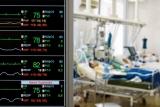Health Topics
-
Healthy Living
-
|
| |
| The Bounce-Back after Heart Surgery
|
| Dr Sreedevi Yadavalli with Dr Vijay Dikshit
|
 |
Since the advent of cardiac surgery in the 1950s, there has been concern over disturbances that may develop after otherwise successful heart operations. |
|
A fact commonly recognized by doctors, and less commonly by patients, is that an operation which is technically successful is not invariably followed by the anticipated relief of all symptoms.
Doctors acknowledge that psychological, social and biological factors including patient’s health, attitude, frame of mind, anxiety or depression are closely related to the rate of recovery from open-heart surgery. And these factors are indeed quite variable from one patient’s personality to another. What we are concerned with is: Are these psychosocial and biomedical mechanisms factored in to correlate across time to predict recovery? If yes, then how much of a bearing would this pre-knowledge have on the rehabilitation program for the particular patient, following surgery?
Dr Vijay Dikshit, Chief Cardio-Thoracic Surgeon, Apollo Health City, Hyderabad, says that relatively limited information is available about psychological functioning following open-heart surgery. “But yes, there is a growing focus on improving the quality of life for patients post open heart surgery, a focus that new medical and surgical technology is ensuring goes beyond just extending life. So, in the light of that, such studies can be helpful in determining if behavioural interventions will be required to hasten recovery,†he says.
Also, cardiac surgery and angioplasty have advanced to the point where fatality rates for these procedures - when performed electively in patients under 70 years of age and in qualitatively superior medical environments - are almost negligible. In fact, with death rates so negligible, it is no longer the success of the procedure that is of primary concern; it is the rate of recovery. A recent case is that of Prime Minister Dr Manmohan Singh who underwent a multiple bypass surgery to remove five arterial blockages in his heart. Despite the fact that this was his second such bypass surgery, the 76-year-old Prime Minister is stated to have recovered in record time. His associates and doctors were quoted on news channels as attributing his excellent progress to his “positive attitude.†|
| |
 |
Now despite allowing for the fact that the rehab cardiac therapy program of Dr Manmohan Singh would have demanded the best practitioners in the country, who would have worked to ensure that the nation’s CEO gets back to work as fast as possible, wouldn’t they have to work on some indicators of quality of life of Dr Singh to tailor his recovery process?
“Post operative recovery after cardiac surgery is often a part of the entire process of managing heart disease. The entire process actually involves a combination of cardiac surgery, rehabilitation, aggressive antihypertensive therapy and lifestyle modification aimed at prevention.
|
|
| |
Though surgery corrects current damage in the form of removing arterial blocks, we are concerned that the problem does not recur. So counselling on the need to modify lifestyle is an integral part of the rehab program,†says Dr Dikshit.
He goes on to say, “Actually, one does get to see quite a few ‘record’ recoveries after heart surgery, especially among those who make a conscious effort to hasten their recovery through all round co-operation. For instance, just the other day, I operated on a heart surgeon. In three weeks he was back to conducting a heart surgery on one of his patients!†|
| |
|
|
| |
|